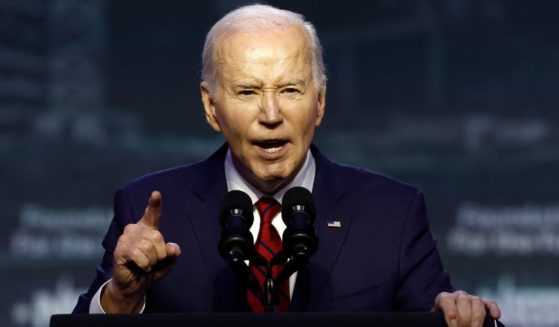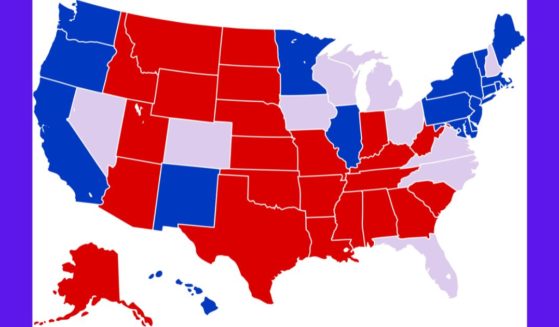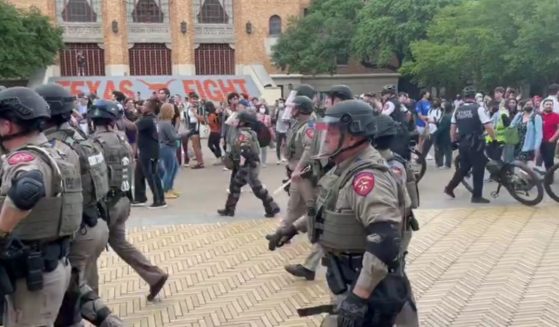Judge sentences would-be Chicago bar bomber to 16 years
CHICAGO (AP) — A federal judge on Monday handed an Illinois man a 16-year prison sentence for trying to kill hundreds of people by detonating what he thought was a car bomb outside a crowded Chicago bar, saying she factored in Adel Daoud’s mental health in imposing a sentence much lower than prosecutors requested.
The sentence — which, with time served, could mean the 25-year-old goes free in less than 10 years — includes prison time for attempting to have an FBI agent killed and for slashing an inmate with a shiv for taunting him with a drawing of the Prophet Muhammad.
Judge Sharon Johnson Coleman alluded to secret FBI recordings of Daoud made during the 2012 FBI sting that ensnared him. Coleman said Daoud was uniquely immature at the time, when he was 18, noting how Daoud is heard giggling almost constantly as he brainstorms attacks to avenge what he saw as the West’s war on Muslims.
At an impressionable age, the judge said the “awkward young man with few friends” was immediately drawn to the 38-year-old FBI agent who first met with Daoud. Daoud promptly began tossing out ideas to impress the agent posing as a terrorist, once suggesting they mount an attack with “flying cars” packed with explosives.
“He continued to do what teenage boys do … talk big,” Coleman said.
Daoud didn’t react Monday afternoon when the judge announced the sentence, but he smiled and wished Coleman well as the hearing ended.
His lead attorney, Thomas Durkin, told reporters outside court afterward that the sentence was “just” and “courageous.” He added about his client: “This gives him a life. We can’t ask for anything more.”
Prosecutors had asked for a 40-year prison term, saying in one filing that Daoud sounded so eager to proceed with a terrorist attack that agents repeatedly sought delays to give Daoud more time to think and change his mind.
“The defendant needed no convincing to kill,” the document said.
After sentencing Monday, the U.S. Attorney in Chicago, John Lausch, told reporters his office found the length of the sentence “disappointing” and that appealing it was a possibility.
In addition to the 16-year prison term, Coleman said Daoud would be on 45 years of supervised release once he is out. She also mandated that he attend what she called “violent extremism counseling.”
The judge criticized both prosecutors and defense attorneys for “hyperbole” during the case. But she said prosecutors were wrong to challenge, at every step, that Daoud suffered from mental illness.
Coleman held three days of hearings on a sentence last week, during which Daoud said he was sorry “for making my parents cry” and “for making a bad name for the Muslim community,” among other apologies. He appeared far calmer last week than during earlier hearings, when his jovial exterior belied the seriousness of his legal plight.
On Monday, Coleman said Daoud was no “run-of-the-mill defendant.” She alluded to how he once accused her of being a “reptilian overlord” in cahoots with the Illuminati. He often seemed oddly happy at hearings, typically smiling and waving to the judge each time he was led into court from jail.
“He has been respectful and pleasant to this court … more so than any defendant I have had,” Coleman said Monday.
The judge temporarily deemed Daoud mentally ill in 2016, saying she was convinced at the time that he truly believed shadowy figures were out to get him. He was later diagnosed with schizophrenia.
A hidden camera captured a gleeful Daoud driving with an agent posing as a terrorist to the Cactus Bar on Sept. 14, 2012. He cups his hands in over his face, praying that God ensure the attack made worldwide news and that it strike fear into nonbelievers. He prays this would be the first of many attacks, the video showed.
He was arrested after parking a Jeep outside the downtown bar on that Friday night, walking to an alley a block away and pushing a button he believed would set off a 1,000-pound (454-kilogram) bomb inside the vehicle. Daoud pushed the button a second time when it didn’t go off.
Agents supplied the fake device, which was made to smell like diesel fuel and had wiring contacted to bags of fertilizer to convince Daoud it was real. He was told it would destroy much of the block and kill hundreds of people out on the town.
Daoud entered an Alford plea in November, saying at the time that he accepted the “factual basis” of the charges against him but denied culpability and maintained his innocence.
___
Follow Michael Tarm on Twitter: https://twitter.com/mtarm
The Western Journal has not reviewed this Associated Press story prior to publication. Therefore, it may contain editorial bias or may in some other way not meet our normal editorial standards. It is provided to our readers as a service from The Western Journal.
Truth and Accuracy
We are committed to truth and accuracy in all of our journalism. Read our editorial standards.












